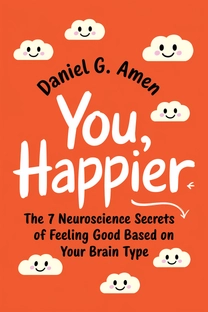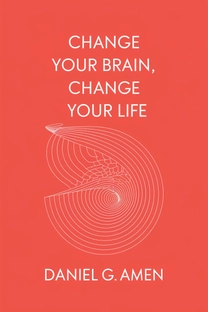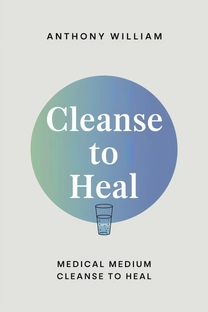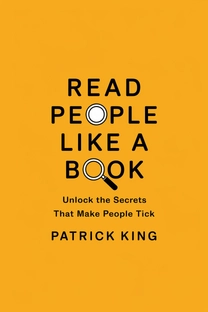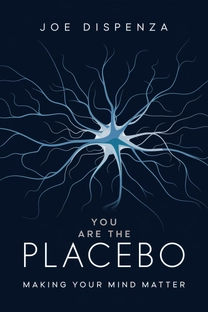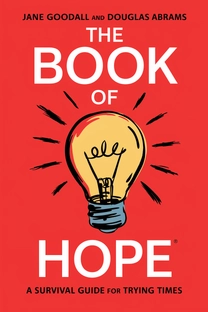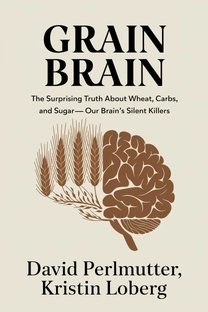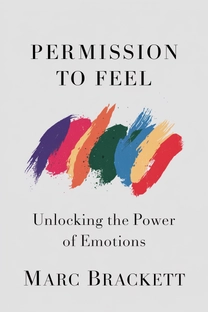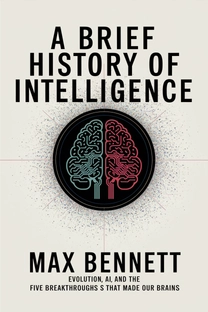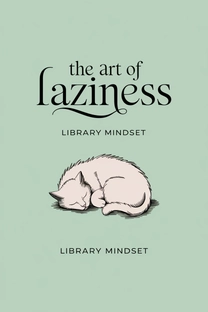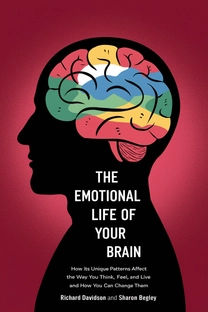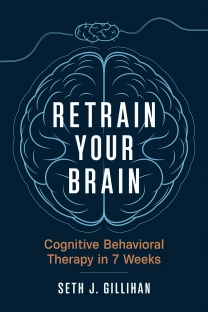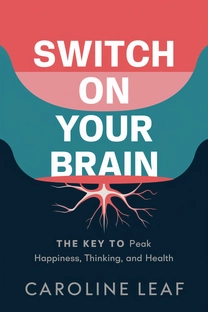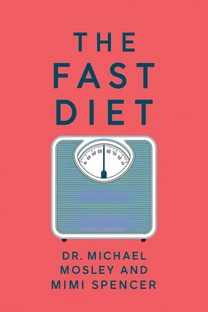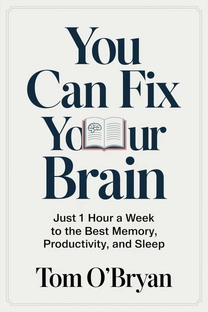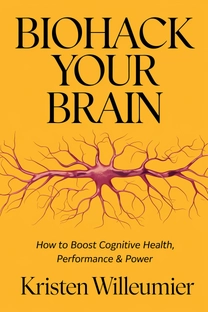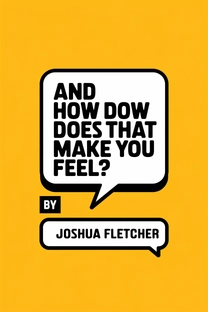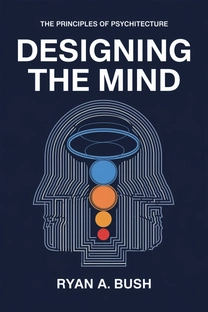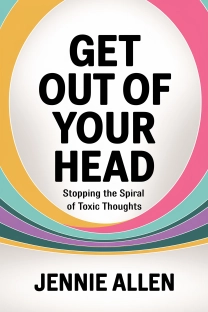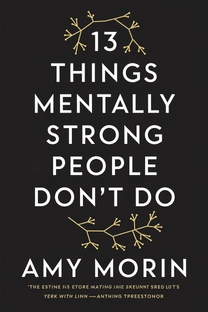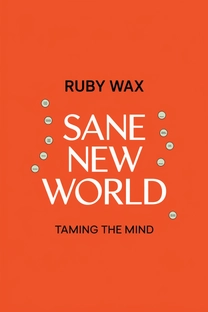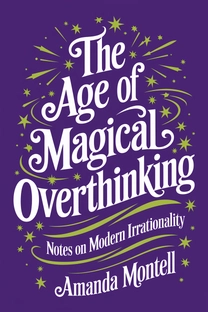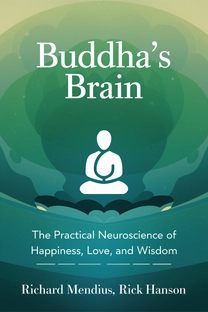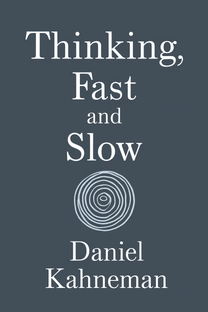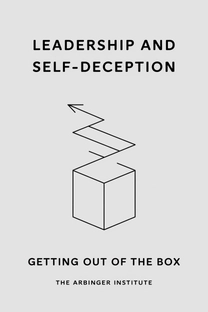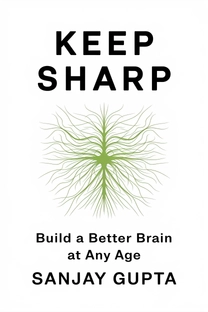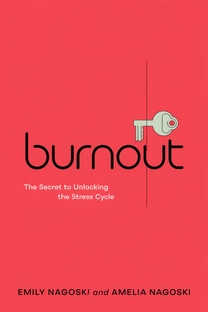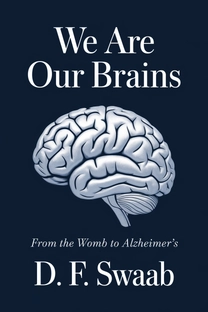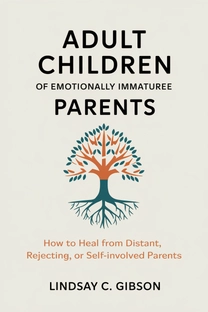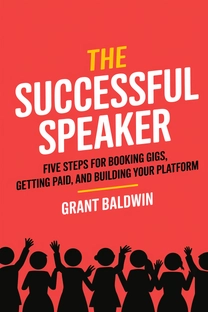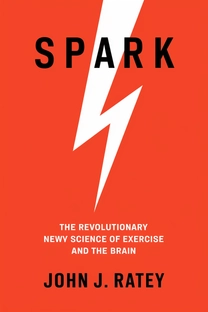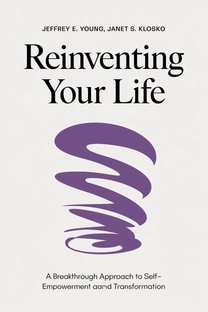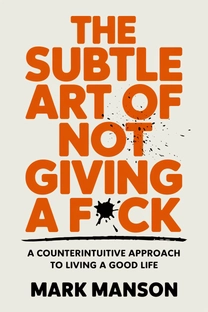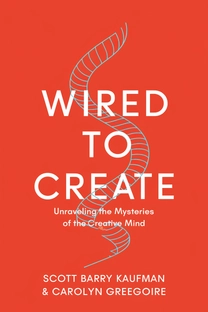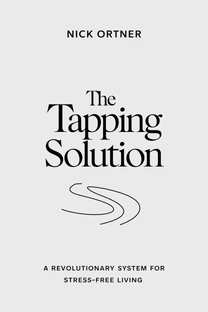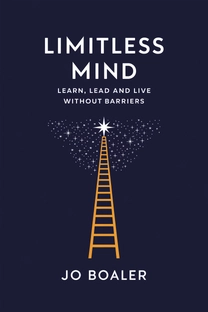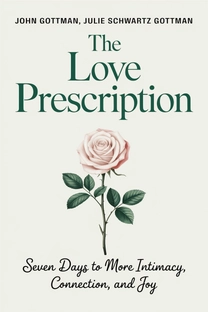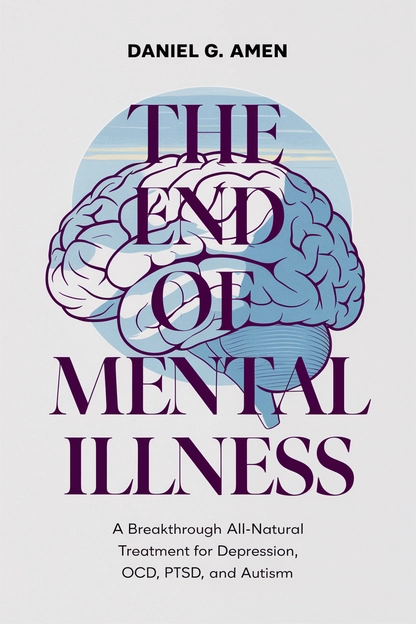
The End of Mental Illness
How Neuroscience Is Transforming Psychiatry and Helping Prevent or Reverse Mood and Anxiety Disorders, ADHD, Addictions, PTSD, Psychosis, Personality Disorders, and More
by Daniel G. Amen, MD
Brief overview
This book challenges conventional views of mental illness by focusing on the brain itself as the key to recovery and resilience. It introduces new methods for understanding brain function, highlights the importance of lifestyle adjustments, and shows how practical steps can dramatically improve mental well-being. By examining physical, psychological, social, and spiritual factors, readers learn a holistic approach to transforming their overall health and outlook on life.
Introduction
Many people think of anxiety or depression as emotional issues alone, yet modern research reveals that such struggles often relate to the state of our physical brain. When the brain is unstable or compromised, mental and emotional challenges arise more easily. This fresh perspective sparks hope, because it means we can use sound science and everyday strategies to heal and strengthen the organ that governs our thoughts.
In this introduction, you’ll discover why replacing old labels like “mental disorder” with “brain health challenge” opens the door to tangible solutions. We’ll see that optimizing blood flow, balancing neurochemicals, and supporting the body on all levels can ease issues that seemed unmovable. By reading further, you can redefine the conversation around wellness and feel empowered to take an active role in your self-care.
Rather than hiding symptoms or resorting only to medication, this approach digs deeper. It honors both biology and personal history, using brain-friendly habits that support calmness, clarity, and stronger emotional resilience.
We begin with a positive message: no one is stuck with the brain they have. Through focused effort and guided changes, the brain can be transformed, and so can daily life.
Understanding the Brain-First Approach
Traditionally, therapists have emphasized talk-based methods or surface-level diagnoses defined by mood or behavior patterns. This newer mindset, however, places the brain at the heart of transformation. By investigating factors like blood flow, toxicity, or even head injuries, experts can often pinpoint the core challenges—and treat them more precisely.
A key idea is that the brain is soft, delicate, and easily influenced by both internal processes and external events, from daily stress to actual injuries. If we keep ignoring these elements, even the best talk therapy may only scratch the surface.
Assessing lifestyle and biology before jumping to a quick label paves the way for more thorough solutions. And by focusing on things like nutrition, purposeful thinking, and restful sleep, individuals often witness powerful improvement in mood and thinking ability.
Ultimately, this perspective does not demean emotional therapies or medication. Instead, it integrates them with physical care—treating the organ that generates our thoughts and feelings.
What is The End of Mental Illness about?
In "The End of Mental Illness," Dr. Daniel G. Amen redefines how we perceive and treat mental health disorders by focusing on brain health. By exploring the intersections between neuroscience and psychiatry, Amen emphasizes practical lifestyle changes and advanced neuroimaging techniques to unveil the root causes of mental illnesses. The book challenges conventional methodologies by offering a comprehensive strategy to improve not only mood and anxiety disorders but also ADHD, addictions, PTSD, and more. Readers are empowered to address mental health holistically, considering physical, emotional, and social factors, making this work a pivotal guide in understanding and optimizing personal brain health.
Dr. Amen provides insights into brain function and the connection between everyday habits, like nutrition and sleep, and mental well-being. Presenting case studies and common misconceptions, the book advocates for brain-focused treatment plans. By emphasizing prevention and the underlying biochemical processes, Amen helps readers grasp how to transform brain health and, consequently, mental health. This shift from traditional symptom-focused approaches to a brain-first methodology offers transformative solutions that foster resilience and cognitive clarity, making the book invaluable for both individual and professional development.
Review of The End of Mental Illness
"The End of Mental Illness" by Daniel G. Amen, MD, stands out for its holistic approach to mental health, merging cutting-edge neuroscience with practical applications. One of the key strengths lies in its focus on brain imaging, which allows for personalized treatment strategies beyond typical pharmaceutical interventions. Amen's integration of lifestyle modifications—such as diet, exercise, and sleep hygiene—offers actionable and sustainable solutions for enhancing mental well-being.
The book's evidence-based approach empowers readers with the knowledge to see mental illnesses as brain health issues, highlighting that anyone can benefit from a deeper understanding of their brain's biology. Dr. Amen's writing artfully balances professional insights with accessible language, making complex neuroscientific concepts digestible. His clear recommendations enable both skeptics and believers to take actionable steps towards mental recovery and holistic health, irrespective of professional background.
For patients and practitioners alike, "The End of Mental Illness" is indispensable. It bridges the gap between neuroscience, psychiatry, and everyday care, advocating for a comprehensive approach to transformative health. The book is recommended for mental health professionals, educators, and anyone eager to enhance their life quality through improved brain care, dispelling myths about mental health in the process.
Who should read The End of Mental Illness?
- **Mental Health Professionals:** Provides neuroscientific perspectives and integrative approaches to patient care, advocating for advanced diagnostics such as neuroimaging.
- **Educators and Students in Psychology:** Enhances curriculum understanding with holistic methods and modern treatments, expanding beyond pharmacology.
- **Patients and Family Members:** Offers valuable insights into brain health, transforming the perception of mental health challenges and empowering proactive steps.
- **Health and Wellness Coaches:** Supplies actionable strategies that complement physical training with mental and emotional wellness guidance.
- **General Public Interested in Self-Development:** Offers self-help techniques focused on brain care, supporting long-term well-being and mental clarity.
About the author
Book summaries like The End of Mental Illness
Why readers love Mindleap
10-Minute Book Insights
Get the core ideas from the world's best books in just 10 minutes of reading or listening.
Curated For You
Discover your next favorite book with personalized recommendations based on your interests.
AI Book ExpertNew
Chat with our AI to help find the best book for you and your goals.
Reviews of MindLeap
Love how I can get the key ideas from books in just 15 minutes! Perfect for my busy schedule and helps me decide which books to read in full.
Alex R.
The summaries are incredibly well-written and the audio feature is perfect for my commute. Such a time-saver!
Jessica M.
Great app for personal growth. The insights are clear and actionable, and I love how they capture the essence of each book.
Chris P.
The app is beautifully designed and the summaries are top-notch. Definitely worth every penny!
Sarah K.


